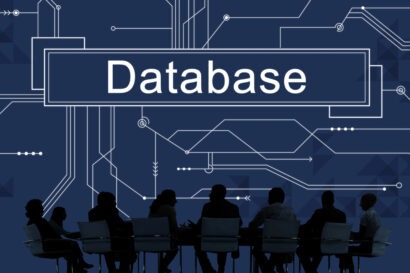In 2016, Nigeria’s Presidential Enabling Business Environment Council recognised that Nigeria should not be left behind in the emerging digitisation of tax processes in Africa. Working closely with the Federal Inland Revenue Service, the council introduced six key electronic solutions.
The solutions included e-registration of new taxpayers, e-payment of federal taxes and stamp duties, e-filing of returns, e-receipting and electronic issue of the tax clearance certificate, needed for many official processes.
These solutions were expected to simplify and automate tax administration processes, which would improve turnaround times for the registration, filing, payment and eventual receipt of the electronic tax certificate.
In enabling not only smoother revenue collection but the speedy issuance of key paperwork needed for administrative and business life, this was heralded as a welcome development for both government and citizens.
Many Nigerians however may not be able or willing to file or pay online due to low tax morale. For instance, only 17% of those surveyed thought non-payment was ‘wrong and punishable.’
Trust remains an issue as Nigerians do not trust their tax officials, have little knowledge on taxes and believe they do not get reciprocal social services from Government. Another challenge is that the digitisation of tax processes may suffer some hitches due to diverse factors which span technological, social and economic factors.
In regards to technology, there is a relatively low penetration of computers, poor electrical supply and limited terrestrial networks.
Linking the issues of trust and technology, Nigerians have become familiar with information security issues due to a historic prevalence of internet-based fraud crime, which influences unwillingness to share personal financial information due to cyber security breaches, the Achilles heel of any technology–driven system.
Economically and administratively, there is also the challenge of a meagre tax base where if the taxpayer’s income is less than N300,000 per annum, a 1% tax is due. The taxpayer may find no basis to comply with tax payment because of meager income.
Literacy is also key. The United Nations Development Program (UNDP) pegged Adult Literacy rate in Nigeria at 69.1%, while the National Commission for Mass Literacy, Adult & Non-Formal Education revealed that 60 million Nigerians cannot read, write and lack basic skills for modern living.
Related is the issue of language itself. E-Systems are provided primarily in English, whereas many Nigerians – even among those who are literate – are more comfortable transacting business in first languages such as Hausa, Yoruba, Igbo or pidgin English. In an era when providers such as Google and the BBC are providing services in these languages, FIRS must do more in lowering the barrier as it currently provides paper tax forms and other literature in the three major Nigerian languages, but not in a digital format.
Statistics peg the number of Nigerians living with disabilities at 25 million and these disabilities are of various forms that impede living a functional life. Taxpayers with visual impairments for instance, may not be able to digitally engage until certain modifications are made for the purpose of adaptation and utilisation.
The Way Forward
How can the Nigerian Tax Authorities overcome these obstacles to ensure acceptance of the digitisation process? There are some good places to start. These include:
- Work on bridging the fragmented social contract as shown in the NESG survey, to improve tax morale. It is laudable that the Nigeria Governor’s Forum tax for service programme is working towards this.
- Pushing for the enactment of enabling legislation to guide the digitisation of tax administration. Once legislation is in place, it will aid effective implementation and collection of taxes from digital transactions. Non-digitally engaged taxpayers would also be urged to adhere to the law.
- Deploying behavioural economics into understanding the tax behaviour of this category of taxpayers, why they act the way they do, and how to nudge them towards compliance.
- Being proactive in reaching non-digitally engaged taxpayers through constant educational programmes and enlightenment on the benefits of digitised tax services
- Making paper–based alternatives available for those taxpayers who chose to remain outside the realm of digital services
- Introducing specialised programs to assist those living with disabilities.
Digitisation is the way forward for Nigerian tax authorities. However, they must take into consideration the peculiar Nigerian tax environment and utilise various tools to make its taxpayers adapt to the new system.
The non-digitally engaged may seem like an insignificant number, but when taxpayers become disenchanted with the new system due to faulty implementation procedures or inadequate sensitisation, the tax authorities must be willing to go back to the drawing board to make digitisation work.
Call for adoption of technology at inaugural ‘Technology & Tax’ event
The ICTD, alongside the World Bank, recently supported the Nigeria Governors’ Forum (NGF) as they hosted the inaugural ‘Technology & Tax Event.’
During the event, Mohammed Nami, executive chairman of the Federal Inland Revenue Service (FIRS), stated the adoption of technology is needed to improve tax collection and block revenue leakages in Nigeria.
Watch the video of the full event here.



